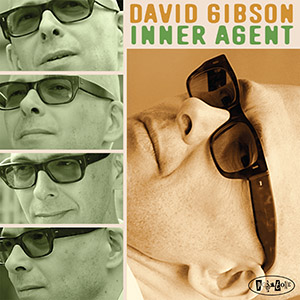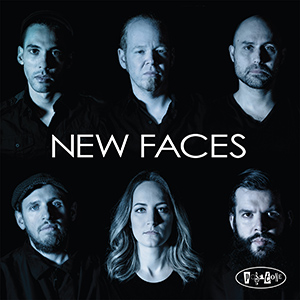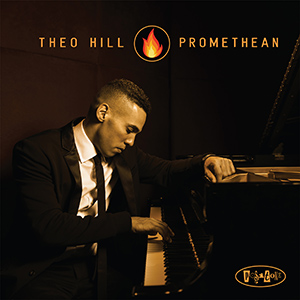If you follow trombonist David Gibson on Facebook, or are FB “friends” with him, you’re likely familiar with some of his posts that cover a whole host of topics, from the power of music, to what it means to be a professional, how to act on a gig, how to communicate with people you might not agree with, etc. In these posts he is always positive, insightful, and generally optimistic.
Now I tend to be pretty cynical and dark, and sometimes when I see one of his posts like this, especially if it’s early in the morning, I might let my “not only is the glass half empty, the glass is cracked” outlook get the best of me and start to write it off. But then I invariably find the grown-up part of my brain saying to me “dude, get over yourself, he’s right.” And then I think about what he said for a bit and move on with my day, often having found what he’s said to have some kind of resonance or significance with things I often think about or experience.
I cannot say I know Gibson, I’ve never seen him play, and I only know his music from his records. But based on my limited interaction with him online and knowing his music, I can say that the world needs more musicians, and people, like him. This is clearly evident on his newest album on Posi-tone: Inner Agent. It, along with his previous albums, exudes all the qualities that I’ve come to respect about him. It’s honest, positive, straightforward, swinging, hip (I mean just look at his fashion sense—I’m super envious of his suit collection), and there’s no b.s. or posturing. And it’s clear from the music that his bandmates—trumpeter Freddie Hendrix, pianist Theo Hill, bassist Alexander Claffy, and drummer Kush Abadey—appreciate and share these qualities as well. Simply put, Inner Agent is one of the finest straight ahead albums of the year and is as good as contemporary hard bop gets.
 The album charges right out of the gate with the uptempo title track. Aside from Gibson and Hendrix’s burning solos, one of the most impressive aspects of the performance is the hookup between Hill and Abadey, who play off each behind the solos, pushing the soloists forward while filling gaps with jabs, fills, and well-placed accents. Hearing Gibson borrow a figure from one of Hill’s comped lines during his solo shows that these guys are locked in. And it would be a mistake to overlook Claffy, whose unwavering walking bass holds everything together. “I Wish I Knew” is so good, so soulful, and so full of optimism that it’s just about enough to restore my faith in humanity. The tune’s melody and easy swing could be straight out of a classic 50s or 60s Blue Note album. Gibson’s solo exudes a declarative joyfulness, Hendrix turns the heat up a notch with a few bluesy choruses, while Hill takes a direct and unadorned approach, using a series of single note lines. The quintet expands to a septet on “The Scythe” with the addition of tenor saxophonist Doug Webb and alto saxophonist Caleb Curtis. The four-horn front line adds power to Gibson’s tune, which features an angular bridge that ratchets up the tension. Webb wastes no time working up a lather, while Curtis and Gibson take a more measured approach. The tune is so well-suited for an open-ended blowing session I wish it had been twice as long to give the soloists more time to stretch out. “Gravy” is a medium, sly funk—it’s as if the band is in on a big secret, but we’re not quite hip enough to know what’s up.
The album charges right out of the gate with the uptempo title track. Aside from Gibson and Hendrix’s burning solos, one of the most impressive aspects of the performance is the hookup between Hill and Abadey, who play off each behind the solos, pushing the soloists forward while filling gaps with jabs, fills, and well-placed accents. Hearing Gibson borrow a figure from one of Hill’s comped lines during his solo shows that these guys are locked in. And it would be a mistake to overlook Claffy, whose unwavering walking bass holds everything together. “I Wish I Knew” is so good, so soulful, and so full of optimism that it’s just about enough to restore my faith in humanity. The tune’s melody and easy swing could be straight out of a classic 50s or 60s Blue Note album. Gibson’s solo exudes a declarative joyfulness, Hendrix turns the heat up a notch with a few bluesy choruses, while Hill takes a direct and unadorned approach, using a series of single note lines. The quintet expands to a septet on “The Scythe” with the addition of tenor saxophonist Doug Webb and alto saxophonist Caleb Curtis. The four-horn front line adds power to Gibson’s tune, which features an angular bridge that ratchets up the tension. Webb wastes no time working up a lather, while Curtis and Gibson take a more measured approach. The tune is so well-suited for an open-ended blowing session I wish it had been twice as long to give the soloists more time to stretch out. “Gravy” is a medium, sly funk—it’s as if the band is in on a big secret, but we’re not quite hip enough to know what’s up.
Like his last album entitled Boom!, Inner Agent closes with a cover of a pop tune. Whereas the former ended with Eric Clapton’s “Change the World,” he finishes the latter album off with George Harrison’s “Here Comes the Sun.” I admit that when I first saw that each of those were on the albums my inner cynic took hold and almost cringed. But then I thought “wait, ok, change the world, ok, things are pretty messed up, the world could use some changing.” And with “Here Comes the Sun”: “oh man, I’ve heard some bad Beatles covers, I hope this isn’t lame.” [*wrong, hits reset button*] “wait, this is hip, ok, ‘here comes the sun…it’s alright,’ we could use some sun and optimism and positivity.”
Perhaps it’s fitting that I’m finishing this review on the eve of the 2016 presidential election, which in all its ugliness, drama, immaturity, and divisiveness has made it painstakingly clear that for a great number of Americans, cynicism and exploiting people’s fears and base emotions remain effective tools for achieving one’s goals, whether they be profit, ratings, clicks, fame, or power. By listening to Inner Agent and following him online, David Gibson reminds me that music has the power to uplift and to share positive energy with all who encounter it, thereby helping to shed our cynicism. If only we’d listen.
Chris Robinson’s Music & Culture Blog




